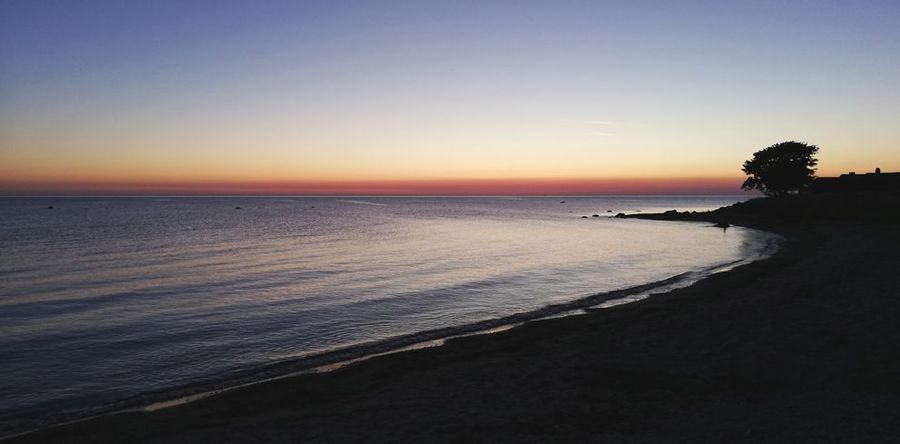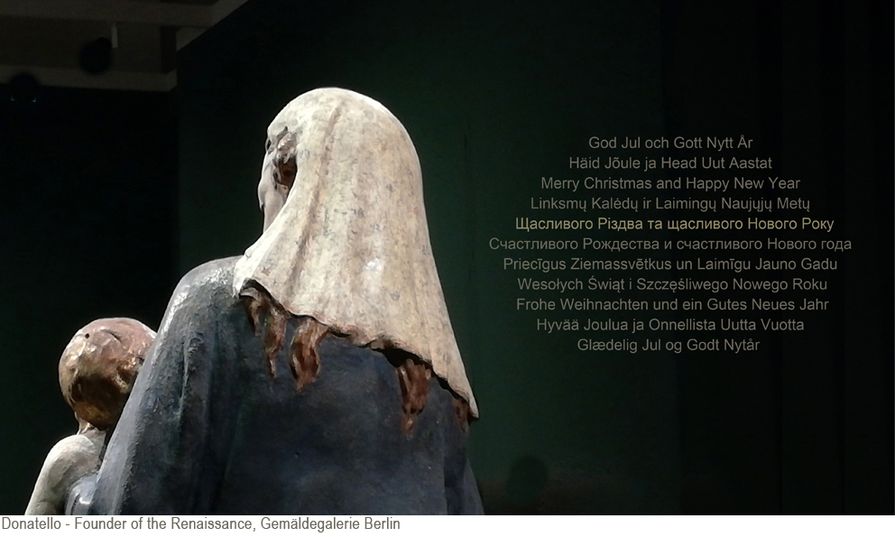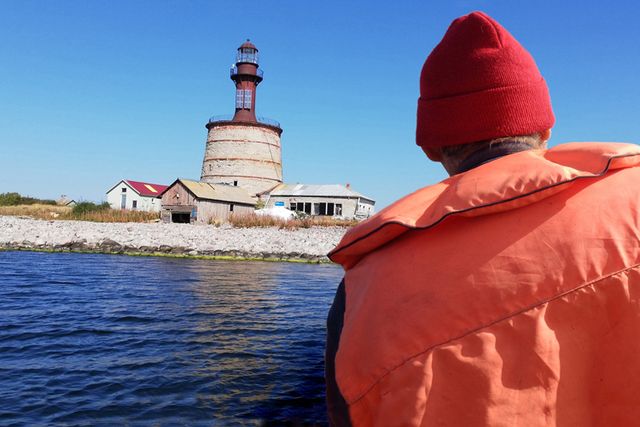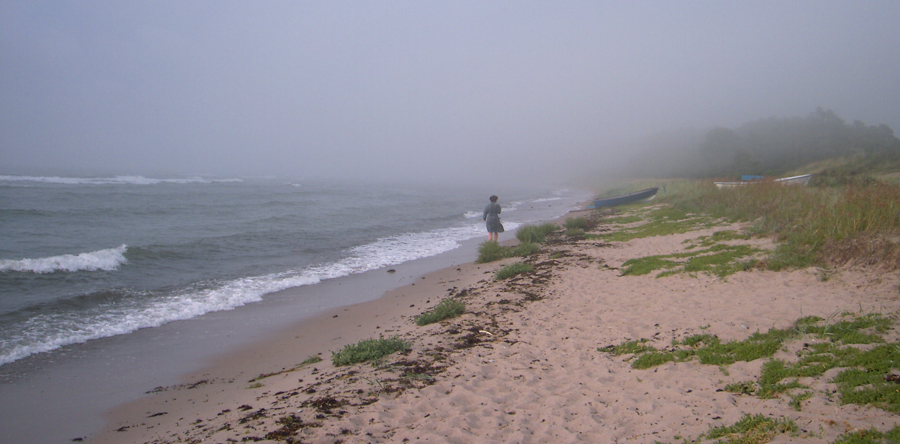News by 15th Dec, 2023
During the second half of this year we have been able to include our library the following:
New texts by Carl Michael Bellman, Tjenare Mollberg, hur är det fatt? (Swedish, Finnish translated by Carl Axel Gottlund, German translated by Felix Niedner)
Gunnar Ekelöf, En vallfart - 1938 (Swedish, commented by John Swedenmark. The Finnish translation by Caj Westerberg will follow soon)
Max Fürst, Gefilte Fisch. Eine Jugend in Königsberg (German) © Birute Stern, Jerusalem
Ludwig Passarge, Eine Wanderung auf der Kurischen Nehrung im Jahre 1868 (German)
Lennart Sjögren, Fågeljägarna / The Bird-Hunters (Swedish, English translated by Robin Fulton Macpherson)
Aino Kallas, Lasnamäen valkea laiva (Estonian, translated by Friedebert Tuglas)
Volter Kilpi, Alastalon salissa / Die Albatros (German, translated by Gabriele Schrey-Vasara)
We are looking for translators of the poem Hästen by Anna Rydstedt and we are trying to solve the copyright issue for the late translators of Thieme's poem sequence Finnland: Teivas Oksala and Lars and Mats Huldén.
We have improved the readability of our essay section and established new essays by:
Sigrid Damm, Vögel, die verkünden Land. Das Leben des Jakob Michael Reinhold Lenz
Eduard Müller, Die Fotografie hinter Johannes Bobrowskis Gedicht 'Bericht'
Wishing you all the best for the year to come!
The Baltic Sea Library team
Photo: Hanna Sjöberg, Gotland
News by 15th June, 2023
During the first half of the year 2023 we have been trying to improve the readibility of the texts in our essay section and published the following texts:
Lennart Sjögren, Coast in Winter (poem) English translation by Robin Fulton McPherson
Amanda Aizpuriete, Nakts peldetaja (novel), in Latvian plus German translation by Horst Bernhardt and Lithuanian translation by Dzintra Elga Irbyte
Gunnar Ekelöf, En vallfart – 1938 (travelogue) in Swedish original, German (by Klaus-Jürgen Liedtke) and Russian (by Natalia Press) with a private photo from Suzanne Ekelöf's collection (and with special thanks to Magnus Sjöberg for his donation for the Russian translation)
August Thieme, Finnland (1808). Poem in German (translations to Finnish, Swedish, Russian and English will be published after clearing the rights)
Anna Rydstedt's poem Hästen (in Swedish and Norwegian) has now been commented by Staffan Söderblom.
New essays:
Michael Braun, Blumen aus der Hölle (On the five-volume edition of Finnish-Swedish modernists in Swedish and German: http://www.kleinheinrich.de/buchkunst/buecher_autoren/_finschwed-avantgarde.html)
Evelyn Juers, The Mann family in Travemünde and Lübeck (Extracts from 'House of Exile')
Gert Kreutzer: Strindberg, Linné und die Nemesis divina
Clas Zilliacus, Den finska romanens vida rum. Om Volter Kilpi
By now we hold 130 essays in all! And the library includes 350 writers and translators.
Wishing you all a good summer, despite the war,
with special thanks to Evelyn Juers who found us from Sydney, Australia!
The Baltic Sea Library team

Photo: Hanna Sjöberg, Gotland, Midsummer 2022
Season's greetings
Dear friends and colleagues,
at the end of this saddening year with all its sufferings and threats close to our Baltic Sea region we wish to thank you all for your contributions and the interest and generosity you have shown during the years – and it is now 13 years since we started our virtual library - and to send you our season's greetings and best wishes for a hopefully lighter new year in 2023.
Yours,
Klaus-Jürgen Liedtke
chairman of Forum Mare Balticum e.V.
(grateful for your support in any way)

On the island of Keri (Estonia)
Visiting Keri saar in the Gulf of Finland in order to celebrate the Baltic Sea Day on 27 August, 2022.

When starting the virtual Baltic Sea Library in the year 2010 we found a picture of the lighthouse on the island of Keri, taken by a photograpoher Albert Kerstna from Tallinn, and chose it as header for our website.
Twelve years later members of our supporting association Forum Mare Balticum e.V. visited the island of our chosen logo and discovered that even the island of Keri is taken care of by a voluntary association, Keri selts (union). We interviewed Peep Rada, chair person and "keeper" of the island, and publish the interview with his consent.
Listen to this exciting story!

Minutes of the Baltic Sea Library's editors' meeting held on 14 June, 2022
It is now 4 years since we last met in Rostock. At this very moment the Baltic Sea Library hosts more than 100 essays, 500 texts by more than 350 authors. Due to the support from the Neustart Kultur-program by the German government translations to German have had priority during the last two years.
Klaus-Jürgen Liedtke informed about new texts included in the library:
- Jarosŀaw Iwaszkiewicz, Petersburg (in German, Jan Balbierz praised the translation by Lisa Palmes)
- Klaus Mann, Nördlicher Sommer. Reiseskizze (German)
- Paavo Haavikko, Audun ja jääkarhu (Radio play in Finnish)
- Friedbert Tuglas, Mälestused / Youth memories (in German)
- Nikolai Kharuzin, Russkie lopari (in Russian, German and Swedish).
Essays by
- Andreas Kelletat, Audun, Freya und Münchhausen. On Haavikko`s radio plays (in German)
and
- Christer Westerdahl, Nya tankar om labyrinter / New Thoughts about Mazes (in Swedish and German)
Proposals for new texts:
- Matthias Alexander Castrén, Midsummer on Aavasaksa and Travel thorugh Lapland in 1838
- Gunnar Ekelöf, Karelian Pilgrimage 1938 (copyright by Suzanne Ekelöf, his daughter)
- Poems by Carl Michael Bellman, Anna Rydstedt and Lennart Sjögren
Proposal by Johanna Domokos to open a translingualism subsite along the national literary categories, including such marvelous Baltic authors as Cia Rinne, Sabira Ståhlberg or Øyvind Rimbereid.
Proposal by Johanna Domokos and Sabira Ståhlberg: to hold a conference at ZiF (Center for Interdisciplinary Research), Bielefeld University, in a year ́s time, June 2023, arranged by Forum Mare Balticum and Langueflow (https://langueflow.wordpress.com/)
Theme: Latent and manifest multilingualism in Baltic Sea Literature/Library texts
The Baltic Sea Region is not only an area with dramatic geo-, global and state-political developments, but also a cultural area subject to constant multilingual interference. The aim of this conference is to shed light on the linguistic strategies these literatures manifest from covert/hidden code-switching to overt/manifest modes. The organizers suggest participants investigating the authors and texts included in the online library edited by Klaus-Jürgen Liedtke (http://www.balticsealibrary.info), but analysis of other authors and texts are welcome, too. After peer-review editing of the presentations, suitable studies can be published online at: https://www.balticsealibrary.info/essays.html
We will also investigate the possibilities for a translation fund and for producing a podcast about the Baltic Sea Library.
The political situation had made us feel paralyzed and upset and we feel with Polina Lisvskaya in St. Petersburg.
Some four members of our supporting association Forum Mare Balticum e.V. will travel from Tallinn to Keri Island on 26 August (if weather allows, the boat can only take ten people at once).
Solidarity with Ukraine
The Baltic Sea Library condemns the Russian military’s illegal invasion of Ukraine. Our thoughts are with all the people in Ukraine who are facing war and have to flee their homes.
The Baltic Sea Library strives to foster a common cultural ground for the Baltic Sea region. Our multilingual library recognising and preserving linguistic diversity and translation is directed precisely against a confrontation and totalitarian history view. Our embedded project "Nord Stream 3", explicitly not intended to transport gas like “Nord Stream 2”, but literature into other languages and thus make it accessible in a space that has historically so often been the victim of delusions of power and nationalism. A special focus within this project was therefore on the regions and languages that have been in danger of being torn apart over the centuries. In this new reality, our project feels like the utopia of a peaceful time.
Солидарность с Украиной
Библиотека Балтийского моря осуждает незаконное вторжение российских военных в Украину. Наши мысли со всеми людьми в Украине, которые столкнулись с войной и вынуждены покинуть свои дома.
Библиотека Балтийского моря стремится к созданию общей культурной основы для региона Балтийского моря. Наша многоязычная библиотека, признающая и сохраняющая языковое разнообразие и перевод, направлена именно против конфронтации и тоталитарного взгляда на историю. Наш встроенный проект "Северный поток 3", явно направлен не на транспортировку газа, как "Северный поток 2", а на перевод литературы на другие языки и, таким образом, на то, чтобы сделать ее доступной в пространстве, которое исторически так часто становилось жертвой иллюзий власти и национализма.
Поэтому особое внимание в рамках этого проекта было уделено регионам и языкам, которые на протяжении веков находились под угрозой разрыва. Вэтой новой реальности наш проект кажется утопией мирного времени.
Page 1 of 9

